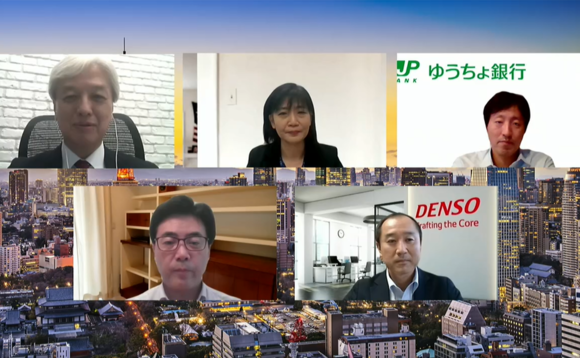
Japanese LPs stress importance of consistent deployment - AVCJ Forum

Institutional investors must maintain a reasonable pace of deployment in alternatives despite the coronavirus pandemic fostering economic uncertainty and hindering efforts to perform due diligence on managers, the AVCJ Japan Virtual Forum heard.
"Continued investment is very important in terms of the asset class. Those who stopped investing during the global financial crisis found they should not have stopped investing, so during COVID-19 you cannot stop investing," said Kaoru Onishi, a general manager in the foreign equity and alternative investment department at Nippon Life Insurance.
This perspective was endorsed by several other local LPs, with Tadashi Nishizawa, a director for private equity investment at Japan Post Bank, noting that the asset class has a history of outperforming others in times of crisis. "In March, listed equities dropped significantly and credit spreads expanded. In the US, listed equities fell by 20% but during this period private equity NAV [net asset value] dropped by 8-10%. In our program, the fall was even smaller than that."
On launching its alternatives program in 2016, Japan Post Bank made an internal decision to continue investing almost regardless of macro difficulties. Nishizawa added that the group's private equity NAV was higher in June than in December and it is expected to be higher still in reports submitted by GPs for the three months ended September.
Orix Life Insurance started building an alternatives investment platform this year and there was some internal opposition to moving forward during COVID-19, according to Noriko Hayashi, a direct in the alternative investments team. However, following a consultation, the group decided to proceed. In fact, the budget for private equity and real estate increased from JPY30 billion ($285 million) to JPY50 billion.
COVID-19 is not the only enemy of continuity for Japanese institutional investors. Yasuyuki Tomita, a senior vice president in the growth and cross-border investment department at Development Bank of Japan (DBJ), cautioned that LPs must have sufficient resources to execute an alternatives program. Staff turnover can be just as much of a problem as macroeconomic headwinds.
"Internal turnover risk is something you have to consider when building your program. Online monitoring must be done, and it involves manual tracking," he said. "The danger is as soon as there is a change in personnel, investment activity stops."
Most investors told the forum they expected to see little if any change in alternatives investment strategy because of COVID-19. However, both Tomita of DBJ and Yoshi Kiguchi, CIO of West Japan Machinery Pension Fund, identified private debt as an area of interest. Kiguchi has exposure to stable investments in infrastructure and real estate, but he also singled out consumer loans. "The default ratio is high, but so are the interest rates, so returns haven't suffered as much," he said.
Travel restrictions that prevent LPs from conducting on-site manager due diligence remain a problem, though many Japanese investors rely on third-party advisors or fund-of-funds relationships in executing international programs. Foreign LPs explained how they are addressing the issue, adapting their processes to rely more on teleconferencing.
"The willingness to do more virtually has been adopted across the board. I have done many AGMs and some of them have been fantastic – everyone is learning from each other on how to make the experience rewarding and differentiated," Alicia Gregory, head of private equity at Australia's Future Fund, told the forum. "However, long term, the need to meet in person and spend time in the office is real. We have yet to cross the line of would we do something without going on site."
Sam Robinson, a managing partner at family office Northeast Private Equity Asia, observed that he has 20 GPs in his portfolio, and he's known all but one of those managers for more than five years. "It takes a long time for a new manager to get into the fund, but how do you replenish that fund if [the pandemic] lasts for a number of years?" he asked.
Latest News
Asian GPs slow implementation of ESG policies - survey
Asia-based private equity firms are assigning more dedicated resources to environment, social, and governance (ESG) programmes, but policy changes have slowed in the past 12 months, in part due to concerns raised internally and by LPs, according to a...
Singapore fintech start-up LXA gets $10m seed round
New Enterprise Associates (NEA) has led a USD 10m seed round for Singapore’s LXA, a financial technology start-up launched by a former Asia senior executive at The Blackstone Group.
India's InCred announces $60m round, claims unicorn status
Indian non-bank lender InCred Financial Services said it has received INR 5bn (USD 60m) at a valuation of at least USD 1bn from unnamed investors including “a global private equity fund.”
Insight leads $50m round for Australia's Roller
Insight Partners has led a USD 50m round for Australia’s Roller, a venue management software provider specializing in family fun parks.








